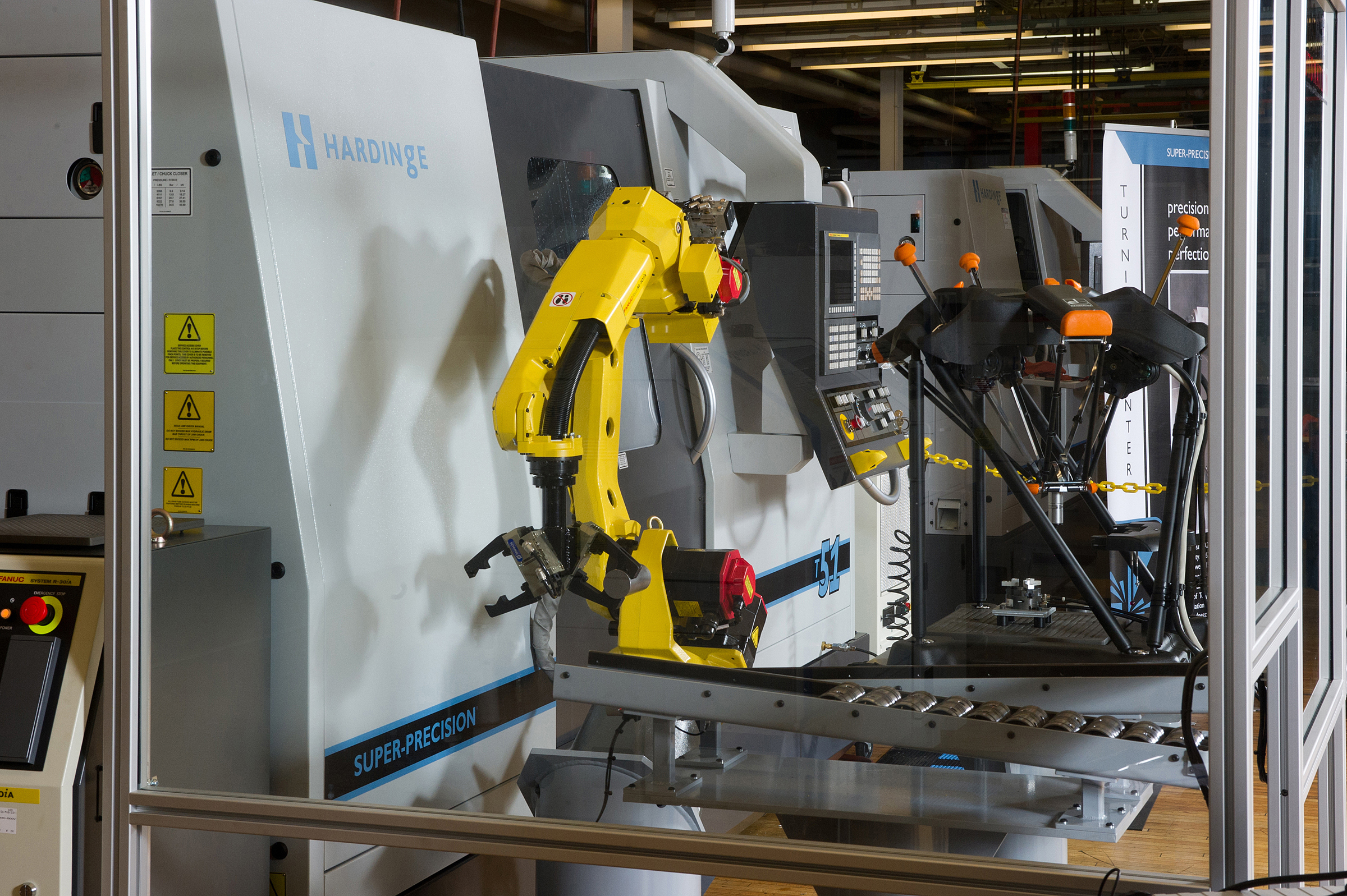7 Things You May not Know About Manufacturing Robots
 Robotic automation is transforming modern manufacturing by eliminating repetitive, labor-intensive functions thus freeing machine operators to concentrate on programming, setup and other important tasks. As a result, they enable manufacturers to be more productive and competitive. Here are a few facts about industrial robots you may not be aware of.
Robotic automation is transforming modern manufacturing by eliminating repetitive, labor-intensive functions thus freeing machine operators to concentrate on programming, setup and other important tasks. As a result, they enable manufacturers to be more productive and competitive. Here are a few facts about industrial robots you may not be aware of.
The first practical industrial robot was invented in the 1950s by George Charles Devol, Jr. He applied for a patent for his Unimate digitally operated robotic arm in 1954 and was granted the patent in 1961. The patent title was “Programmed Article Transfer.” The first robots used vacuum tubes as digital switches and later used transistors as that technology was developed at the Bell Labs. General Motors installed the first of Devol’s robot arms in its Inland Fisher Guide plant in New Jersey in 1961.
According to the International Federation of Robotics, the number of multipurpose industrial robots installed in North America at the end of 2012 is estimated to be about 200,000. The annual growth rate of robots added to factories ranges from 39% to 53% with Japan the biggest user of industrial robots followed by the United States.
Robots Improve machine tool utilization by eliminating wasted wait times, missed cycles, and by enabling more consistent machining throughput. They also make unattended operation possible, and eliminate labor-intensive activities such as part loading and unloading, excessive part handling and inspection, that help reduce cost-per-part.
Because they handle parts more consistently and eliminate human error, robots also help producers make better quality parts.
Robots operate virtually flawlessly and consistently, and they don’t take vacations, sick days or holidays. They also eliminate payroll taxes, insurance and other benefit costs.
Manufacturing robots do more than load and unload parts. They can incorporate vision systems and sensing devices that enable them to distinguish various sizes and colors of parts, read bar codes to sort items, conduct inspections for quality control and perform welding and other functions.
Gosiger Automation specializes in using robotics to make machine tools far more efficient and the companies that use them more profitable. With over 90 years of machine tool experience, and with hundreds of successful automation installations, Gosiger brings unmatched experience and expertise to manufacturers of all sizes. To learn more, contact Gosiger Automation.
 |